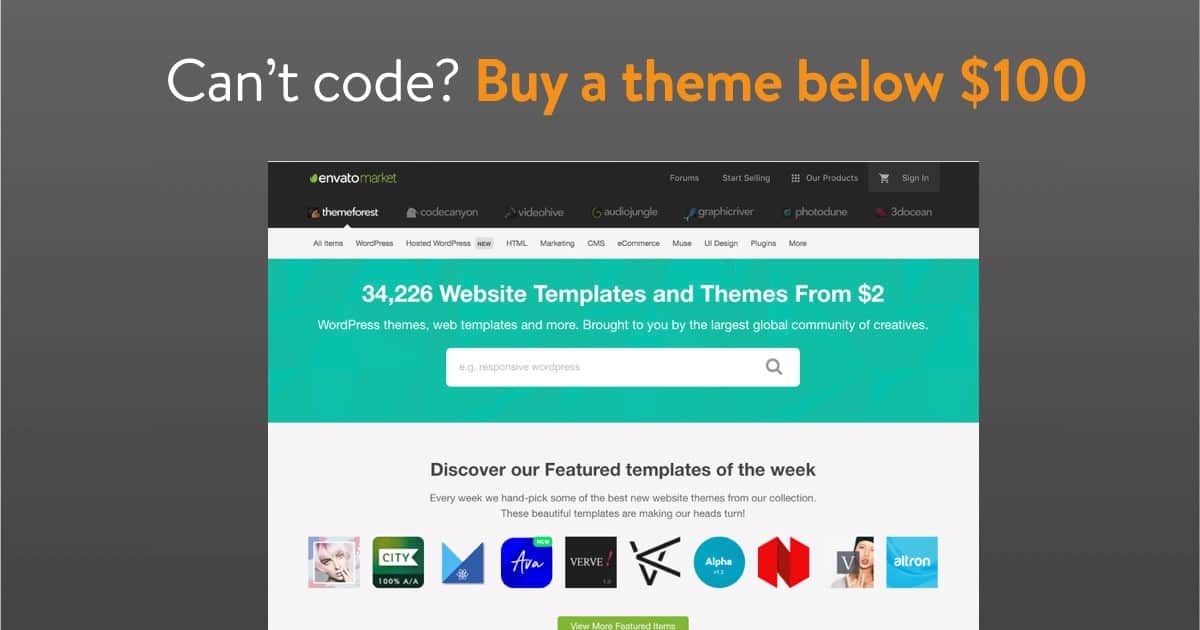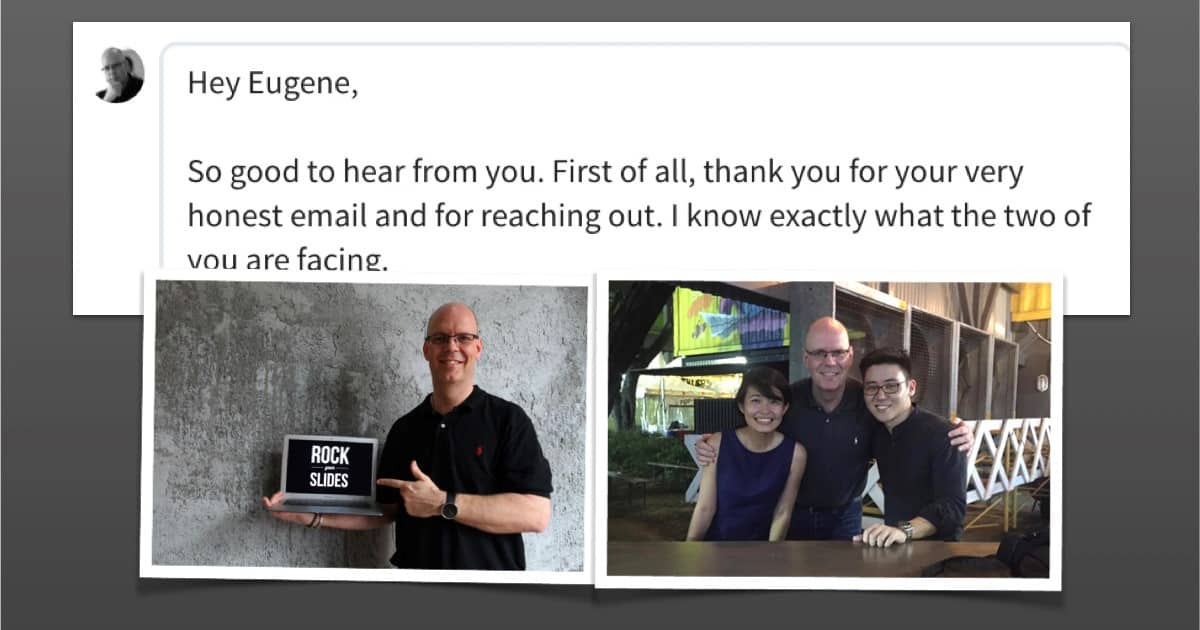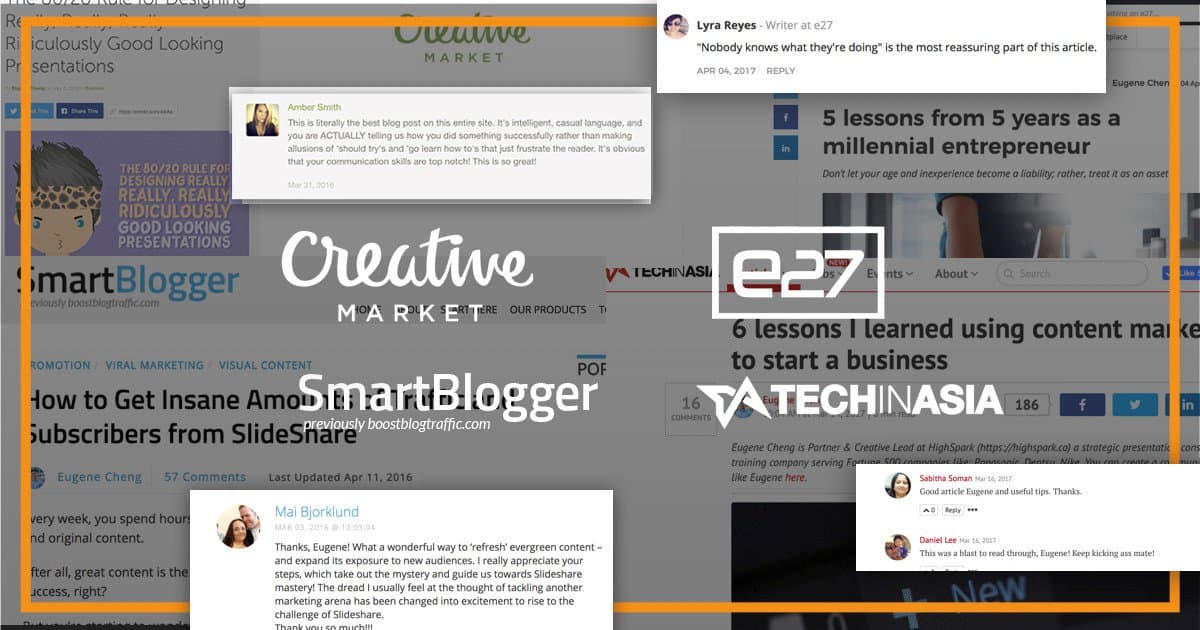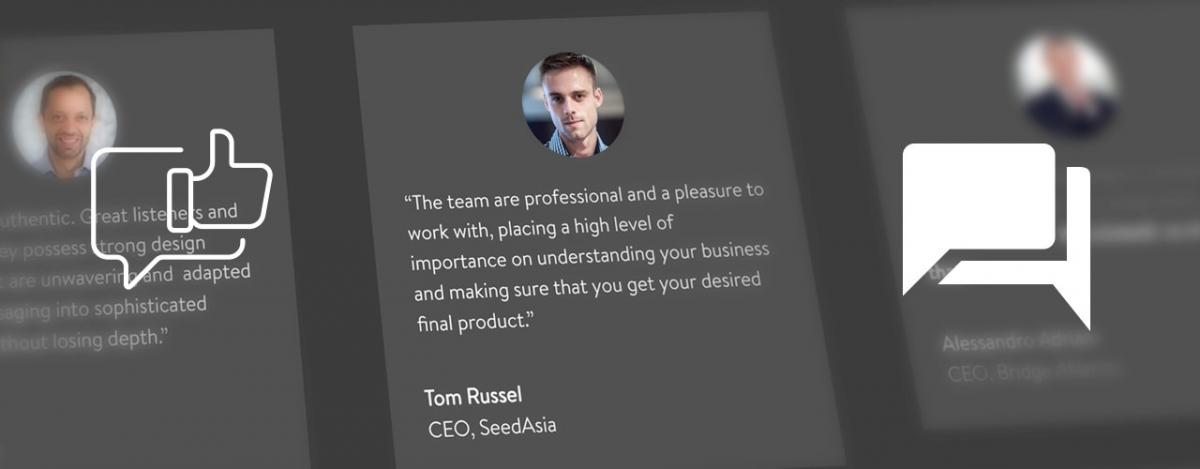Starting a business with a lack of capital? Yes, it’s possible..
Four years ago, fresh out of Polytechnic, my partner and I started HighSpark (then called SlideComet) an agency that provides presentation design services and presentation skills courses to Fortune 500 companies.
Today, when we tell youths interested in entrepreneurship that we did that with only $500 in starting capital each, their faces contort in disbelief. In fact, we didn’t even spend half of our capital in the beginning to secure our first few clients.
There has been debate on how much money you need to start a business. My contention is that: there are businesses that don’t require a lot of capital to start and in this article I’ll be sharing some ways we used to grow ours on a budget when we first started.
The solution? Digital Marketing
Get Online On-The-Cheap
Basically in today’s age, if you’re not online and people can’t find you on the web, you don’t exist. Studies show that 82% of people look at products online before making a purchase.
We knew that a website was one of the non-negotiables we had to get done, but we were strapped for cash and wanted to save some money in the beginning.
Instead of paying a professional web designer thousands of dollars to build our site in the beginning, we decided to build it ourselves since it didn’t require any excessively technical functionality. We got a domain and hosting package from NameCheap before running the site on WordPress – i.e. the most popular CMS in the World.

Since we had no coding knowledge, we purchased a premium theme off Themeforest and got it setup in a couple of days. The cost of these all ran up to about $100SGD for a year’s hosting and a premium theme. This proved to be a wise choice later on because half of our new business came from our web presence as a touchpoint.
The next challenge for us was increasing traffic and visibility for ourselves and our digital presences.
Connect To Industry Influencers
First thing I tried was to start reaching out to some opinion leaders in my space to get advice as well as build a connection using Twitter and LinkedIn.
I sent connection requests to industry influencers not asking for a sale, but for advice (this may sound unintuitive). You don’t need to spend a cent to reach out and build a genuine connection with someone. Out of 10 requests I sent out, maybe about 2 people got back, but that made all the difference.
The reason you’d do this is to learn from them and of course build the foundation for future collaboration when the opportunity arises.
Many of the connections I’ve made with influencers in the first year have since bore fruit. Some have become close friends, some referred work to us and many have offered us very valuable lessons about how to grow and run our business.

For example, Tomas Bay from SlidesThatRock was someone I that looked up to that was based in HongKong. One day, I decided to send him a LinkedIn message asking for some advice and that led to us meeting in person and we’re still great friends till today!
You have nothing to lose reaching out to people that you respect and admire, so start an outreach campaign today.
Pitching For Platforms
Another way to get traffic if you don’t own a strong platform (e.g. a blog, website or area) is to get on someone else’s. Without any real history or advertising budget, it becomes increasingly difficult to get the word out about your company.
What we had at the time were ideas and experiences that we could share with the audiences of those that owned platforms. Now, I’m not saying try to sell your offerings on their platforms. By contributing content as an expert, you’ll gain visibility and credibility.

I basically sent an email out to different blogs that I followed (feel free to steal this template):
—-
“Hey [Name],
[a sentence to identify yourself]I’m an avid reader of your blog and I really loved your recent post on [insert recent post and url].
I noticed that you accepted guest posts on your blog and am keen on becoming a contributor. I have some article titles in mind that I can write about which I feel would be relevant to your audience:
[insert article titles]I’ve also written articles on:
[Insert places where you’ve written articles on if applicable]Look forward to hearing back!”
—
Using this approach, I got replies from a few blogs like KissMetrics, CreativeMarket and even local ones like e27. Within a span of a few months I had articles published on them. Not only did we get loads of traffic from these platforms, we also got a boost in our search engine rankings.
Collect Social Proof and Ask for Referrals
Once we got our first few projects, we knew that we needed to do a few things:
- Deliver to the best of our ability
- Gather testimonials and references on completion of work
- Find avenues to get repeat business or more work from others
The last two things are often overlooked and can lead to business owners missing out on work opportunities.
Gathering References
Especially when you’re just starting out, every successful case study counts when you’re trying to convince a prospective client of the value you can deliver.

Prospects want to reduce the risk that they take in a purchase decision. Positive testimonials from clients that are similar to them do just that. In fact there’s a term for it, it’s called ‘Social Proof.
Asking for Referrals
Asking satisfied clients for referrals does a couple of things. One, it gives the happy client an avenue to repay you for good service and at the same time help their friends. Two, it sends you a warm lead that is much easier to convert into a customer.
This saves you time (and probably money) looking for new clients. A script you can use after the end of your engagement to move the referral process along could go something like:
“Hi [Name],
Really glad to hear that you enjoyed working with us.
Would you happen to know anyone else that faces [describe problem you solved for them] as well?
If so, I’d love to get connected to see how I can help them as well. Happy to be connected via email at: [insert email] or mobile: [insert mobile]
Thanks in advance!
[Sign Off]”If you’ve gone the extra mile for your clients, most of them tend to be appreciative and be willing to help you out in these instances.
Doing the above will help you save effort and resources searching for new business.
Sell Value, Not Time

This is not really a marketing tip but this alone has helped us grow our profits the most. In my opinion, the biggest bane of agency growth in the early stages for us was not charging enough or charging only for our time.
Every time we charged for our time and not the value provided, we were leaving money on the table. Pricing is something that’s arbitrary especially if we’re not talking about homogeneous products.
Find Out Why They Came To You
Why did they come to you? What service and result were they after? Why not someone else?
Once you understand: the catalyst, the objective and your unique selling proposition, you can avoid the pitfall of charging for your time and not value.
Define What It’s Worth To Them
For example, if you’re selling web services, think about how much business the website could potentially bring to them. It’s much better to peg your prices to the possible return-on-investment so it becomes a no-brainer to invest in you.
Imagine if they could pay you $1 to make $4, only a fool would say no to that offer. If it’s something you can’t guarantee, at least make a case for it.
Use The Information In Your Marketing
When you speak more to potential clients or past clients, you’ll start to realize that they use certain words or are typically after certain benefits of your offerings.
Mirror those sentiments in your marketing. The copywriting, the images you select, the way you interact with them and where you interact with them will make a huge difference in how ready they are to buy from you.
If you’re starting a business or freelancing in Singapore on the budget and can’t afford ads just yet, hustling by building connections and getting on new digital platforms will prove to be valuable assets as you continue to grow your business.

















